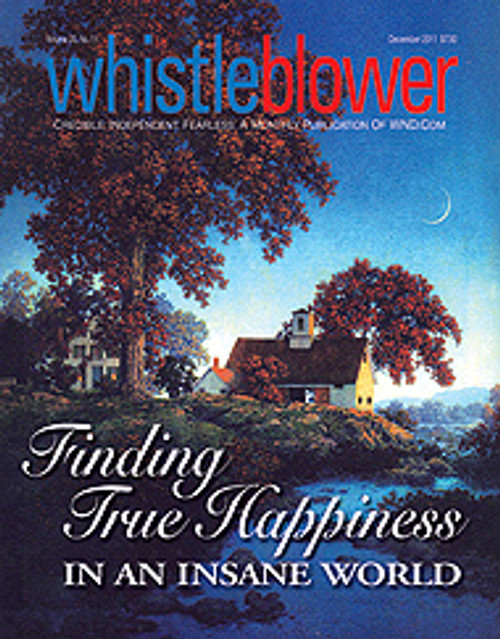You can view the print version here.
WHY BAD THINGS HAPPEN TO GOOD PEOPLE
Every time something really terrible happens—like the Sandy Hook school shooting last Christmas, where 20 beautiful, shiny-faced children, aged six and seven, were massacred in Newtown, Conn., along with six heroic women—the question emerges: How could a loving God possibly allow such a thing to happen?
For atheists, such catastrophes—from school shootings to terror attacks like 9/11 to the mega-genocides of Hitler and Stalin to natural disasters like Katrina and the recent typhoon in the Philippines—constitute ever more evidence that there is no God. Indeed, atheism's main argument is: "If an omniscient, omnipotent and benevolent God existed, he couldn't possibly allow such horrible tragedies to occur—therefore, God does not exist."
While countless people have grappled with this problem over the millennia, its mystery is elusive. Rev. Billy Graham, addressing a mourning nation at the memorial service in Washington's National Cathedral right after the terror attacks of Sept. 11, 2001, acknowledged the seemingly impenetrable nature of the question:
"I have been asked hundreds of times in my life why God allows tragedy and suffering. I have to confess that I really do not know the answer totally, even to my own satisfaction. I have to accept, by faith, that God is sovereign, and He is a God of love and mercy and compassion in the midst of suffering."
In the December issue of WND's acclaimed Whistleblower magazine—with the help of Rev. Billy Graham, Rabbi Daniel Lapin, Pastor Greg Laurie, Christian actor-director Kirk Cameron, former U.S. senator and prisoner of war Adm. Jeremiah Denton and others, as well as WND's Joseph Farah and David Kupelian—the reader is delivered a thought-provoking and faith-strengthening exploration of that most difficult of issues: "WHY BAD THINGS HAPPEN TO GOOD PEOPLE."
Issue highlights include:
- "God and Sandy Hook" by David Kupelian, exploring the radioactive question: Where is the Almighty when children are murdered?
- "Where is the hope?" by Joseph Farah, on what the Bible says about facing real difficulty and tragedy
- "New film confronts most difficult 'universal question'" by Drew Zahn, on Kirk Cameron's new film 'Unstoppable' and its journey of discovery
- "Why all the suffering?" by Greg Laurie, who lost his son in an auto accident, on the reason God allows hard times in the lives of good people
- "Billy Graham warns 'Second Coming is near'" by Troy Anderson, in which the famed evangelist talks to Whistleblower just before delivering his "final, most important" message to the world
- "Graham on 9/11: Hope in the midst of great evil"
- "Atheism's No. 1 argument" by David Kupelian, who explores God-deniers' "gotcha" question: "How could a loving God allow the human race to suffer so terribly?"
- "3 reasons bad things happen to good people" by Rabbi Daniel Lapin, who asks—and answers—"Why doesn't God stop earthquakes and genocides?"
- "Celebrating Christmas in hell" by Admiral Jeremiah Denton, the famed POW's moving account of his encounter with God in a filthy prison cell
- "The Soldier's Psalm."
"This was not an easy issue of Whistleblower to put together," says Editor David Kupelian, "But I believe it has turned out to be very meaningful and that it will deeply touch readers. That is certainly our hope."
For a 12-month subscription to Whistleblower, click here.







